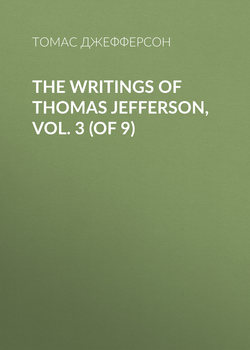Читать книгу The Writings of Thomas Jefferson, Vol. 3 (of 9) - Томас Джефферсон, Thomas Jefferson - Страница 54
PART III.
LETTERS WRITTEN AFTER HIS RETURN TO THE U. S. DOWN TO THE TIME OF HIS DEATH.
1789-1826
TO GEORGE JOY
ОглавлениеNew York, March 31, 1790.
Sir,—I have considered your application for sea letters for the ship Eliza, and examined into the precedents which you supposed might influence the determination. The resolution of Congress, which imposes this duty on the Secretary for Foreign Affairs, provides expressly, "that it be made to appear to him by oath or affirmation, or by such other evidence as shall by him be deemed satisfactory, that the vessel is commanded by officers, citizens of the United States." Your affidavit satisfies me that one of the officers is a citizen of the United States; but you are unacquainted with the others and without evidence as to them, and even without a presumption that they are citizens, except so far as arises on the circumstances of the captain's being an American, and the ship sailing from an American port. Now, I cannot in my conscience say, that this is evidence of the fact, satisfactory to my mind. The precedents of relaxation by Mr. Jay, were all between the date of the resolution of Congress (February the 12th, 1788) and his public advertisement, announcing the evidence which must be produced. Since this last, the proceedings have been uniform and exact. Having perfect confidence in your good faith, and therefore without a suspicion of any fraud intended in the present case, I could have wished sincerely to grant the sea letter; but besides the letter of the law which ties me down, the public security against a partial dispensation of justice, depends on its being dispensed by certain rules. The slightest deviation in one circumstance, becomes a precedent for another, that for a third, and so on, without bounds. A relaxation in a case where it is certain no fraud is intended, is laid hold of by others, afterwards, to cover fraud. I hope, therefore, you will be sensible of the necessity of my adhering to the rules which have been published and practised by my predecessor; and that I am with great respect, Sir, your most obedient, and most humble servant.
